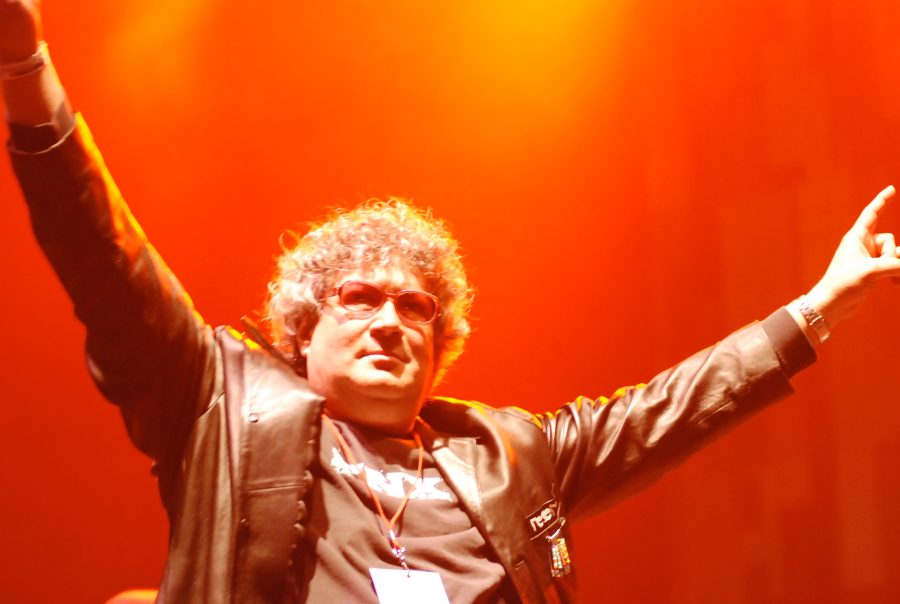You might know Henry Santoro as one of the voices of the popular 101.7 WFNX, an alternative radio station that is a key fixture in Boston radio and with who he has been with since 1983. In a recent interview he told me that he was the second person that was hired when the WFNX was established. Santoro has been covering rock and roll news for over 20 years and has had extensive experience with commercial and college radio. He assured me that college and commercial radio stations are not as different as you might think despite the distinct demographics.Santoro has also had the unique experience of being involved in a station that is responsible for popularizing some of the most influential bands of the past few decades, like The Smashing Pumpkins and Nirvana.
We talked about how he was one of the architects of WFNX. He was and still is very involved in the alternative radio scene, “I’m not only the guy in the newsroom who has done news for a rock and roll audience my whole career; I helped build WFNX.” He went on to explain that back in the early days playing music on the radio was much more of an art. He even referred to disc jockeys of the time as Musicologists. Santoro explained that modern radio utilizes computer programs and other technologies instead of having the radio personalities spin the records themselves. “You put the songs that you want to play into the system and you tell it how many times you want it to play,” said Santoro. He continued, “In the early days, before cds of course, you could play whatever you wanted. That’s what the early days of rock radio were; going into deep cuts and playing the songs you wanted to play.”
Santoro got frank about what the business of radio really is, “We are really in the business of playing commercials. We don’t want to play too many but we want to play enough to pay the bills. We’re fighting for add dollars just like every other station. Without them we wouldn’t get paid. The key thing for radio programmers is to not let the public know that.” I think we take for granted the great historical importance Boston and FNX has had on music. “We were the first commercial station in the country to play Beck… we were the first to play The Smashing Pumpkins, Pearl Jam, Green day, we broke Nirvana. Matter of fact Kurt Cobain used to love hanging around FNX. It wasn’t uncommon to walk out of one of our studios and there he would be sitting on the coach, just hanging out.”
The UMASS radio station, WUMB, has a policy that does not allow students to have air time, I asked Santoro what he thought of the policy. “I’m not sure how I feel about that; I think if you have a college radio station you need to set aside time for students to broadcast on it. That’s how I got my start.” A lot of people might consider college radio completely different from its commercial counterpart, but Santoro assured me they aren’t so different. “College radio and commercial radio have never been closer than they are right now. Take a look at your radio station at UMASS; UMB is a spectacular radio station. You’ve got professional announcers on that radio station but it’s listed and classified as a college radio station. You’ve got Albert O., who is one of the top announcers in town, Dick Pleasants, who is just a legendary broadcaster in the folk circles, and Meg Griffin, who does nights now and she’s a national legend.” He explained how both of these types of radio are there to sell ad time. The real difference is that because college has fewer things to pay, for example salaries, so they don’t chase the ad time as vigorously.”We’re fighting for ad dollars just like every other radio station in town; EEI uses sports to sell advertising we use music.”





















































